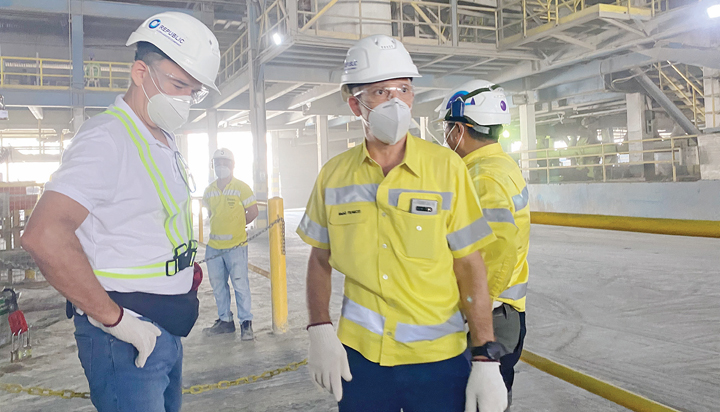
The APEC Business Advisory Council (ABAC) Philippines and ABAC Canada have “received backing” for the integration of nuclear energy into the energy mix to address the growing energy demands within the Asia Pacific Region.
During the ABAC Nuclear Energy Transition Roundtable, Sabin Aboitiz, Vice Chair of the ABAC Sustainable Growth Working Group and President and CEO of Aboitiz Group, underscored the significance of a nuclear energy roadmap that could lead to innovative projects in the near future.
Aboitiz also emphasized the importance of fostering dialogues among industry leaders to provide guidance on critical policy matters that have a substantial impact on the economic progress of the region.
“We aim to craft tangible outcomes that are both actionable and visionary. The output of today’s discourse will be inputs to a proposed nuclear energy cooperation framework. This will not only reflect the shared intellect and aspirations of this working group but will serve as a precursor to a more ambitious undertaking—envisioning a nuclear energy roadmap that could culminate into a groundbreaking project in the near future,” he said.
For her part, Jan De Silva, President and CEO of the Toronto Region Board of Trade and a member of ABAC Canada, emphasized the growing collective interest in introducing or expanding the use of nuclear energy in each country’s energy mix.
She highlighted the role ABAC plays in leveraging the expertise of leaders from various economies to bring invaluable insights to the table.
“The transition to a low-carbon future is expected to be the largest economic transition in history, with 50 percent of this to be driven by energy. In the move to decarbonize and boost energy security and independence, attention has returned to nuclear as a scalable solution. One that is able to produce carbon-free power for a range of industrial and other energy-intensive activities that are difficult to fully electrify,” De Silva said.
De Silva cited the example of Ontario, where 92 percent of electricity is generated from zero-carbon sources, with nuclear energy accounting for nearly 60 percent of this clean energy production.
She noted that Ontario’s government has recently announced its largest-ever nuclear energy expansion, recognizing nuclear energy as the most scalable clean energy solution to meet the increasing need for electrification.
Meanwhile, Department of Energy (DOE) Secretary Raphael Lotilla said it is important to adopt technological advancements in clean and alternative energy sources to enhance energy security, stability, reliability, and affordability in the Philippines.
“We in the Philippines foresee offshore winds, nuclear energy, and other emerging technologies, accounting for the increase in power capacities at around 19,000 megawatts. The entry of these emerging technologies in the energy mix will complement the country’s energy transition. New nuclear technologies such as small modular reactors can bolster the role of nuclear power in our energy mix,” he said.
The ABAC Nuclear Energy Transition Roundtable makes the initial stage of the nuclear integration initiative, serving as a “preparatory platform to strengthen the presentation by the ABAC Sustainable Growth Working Group on the potential of nuclear energy.”
